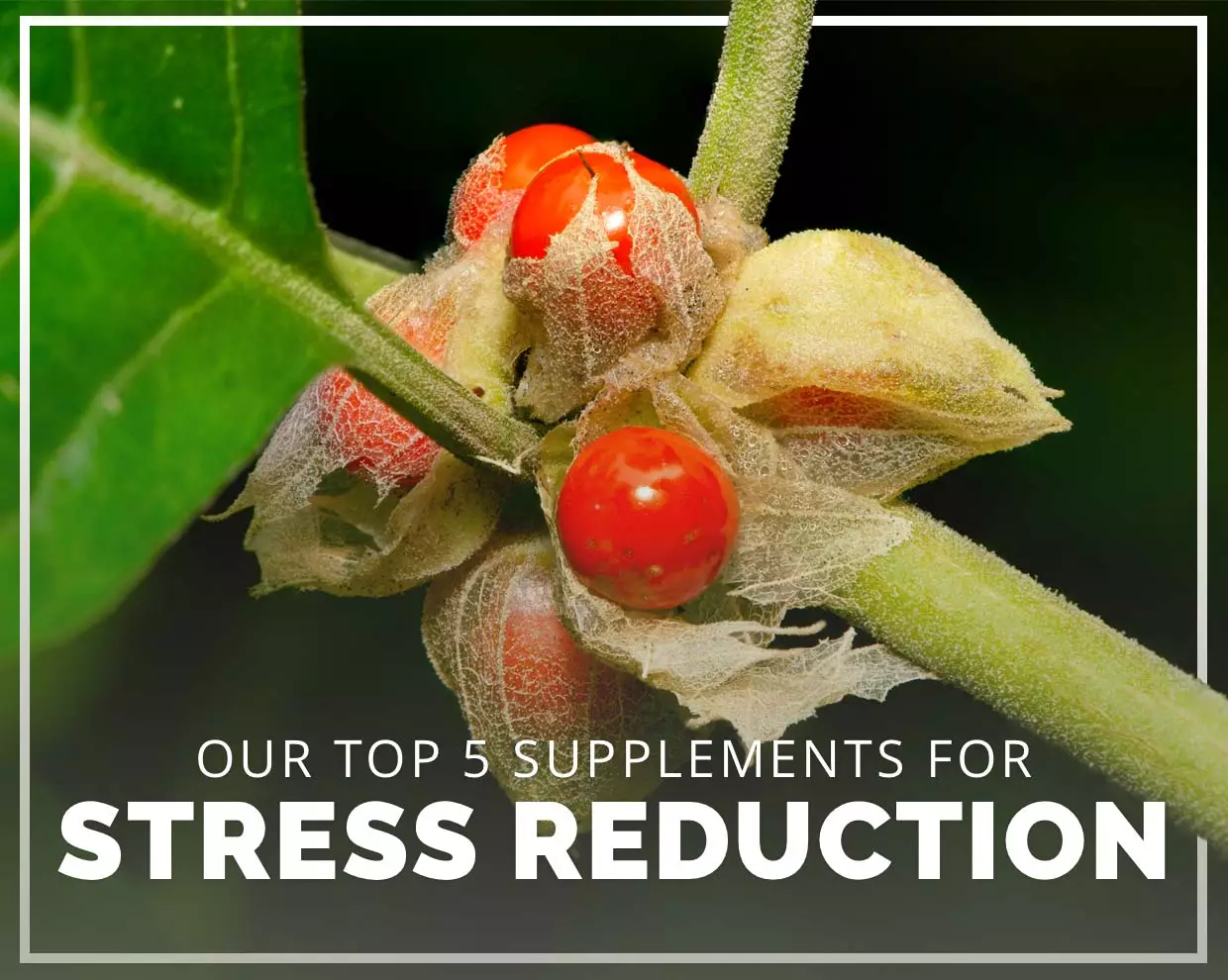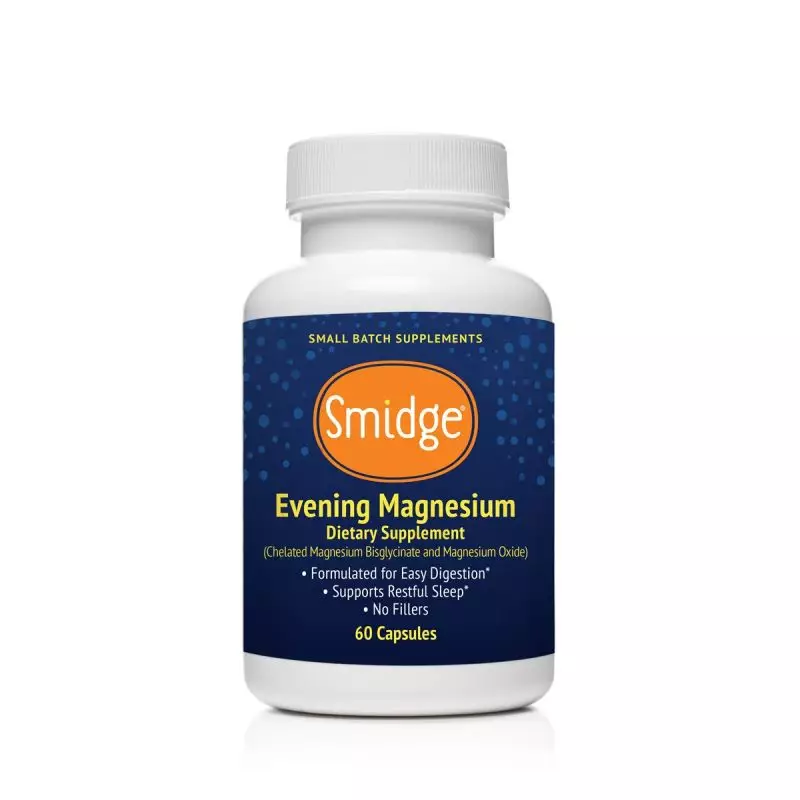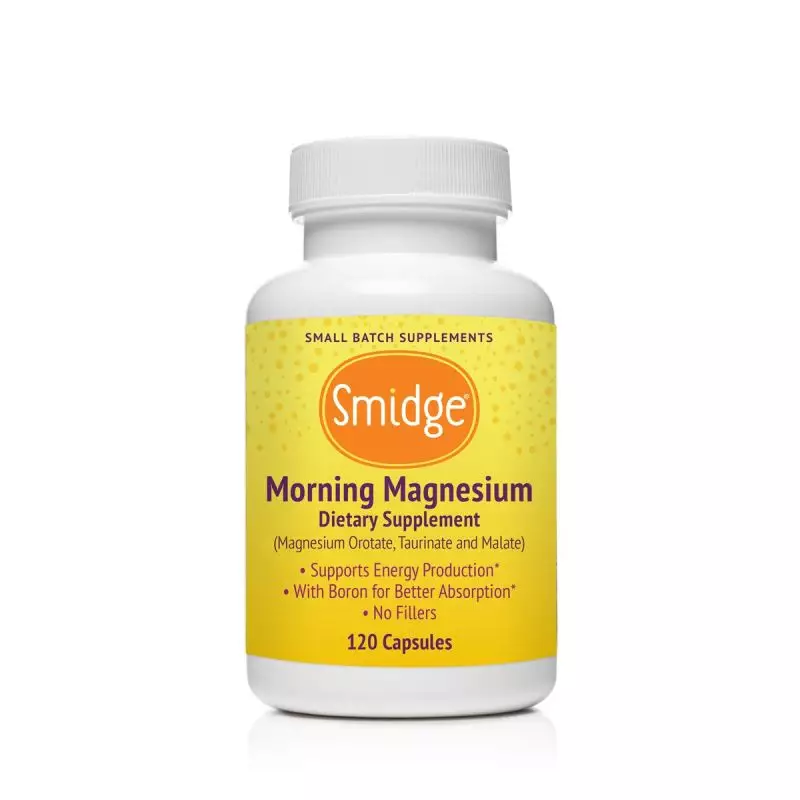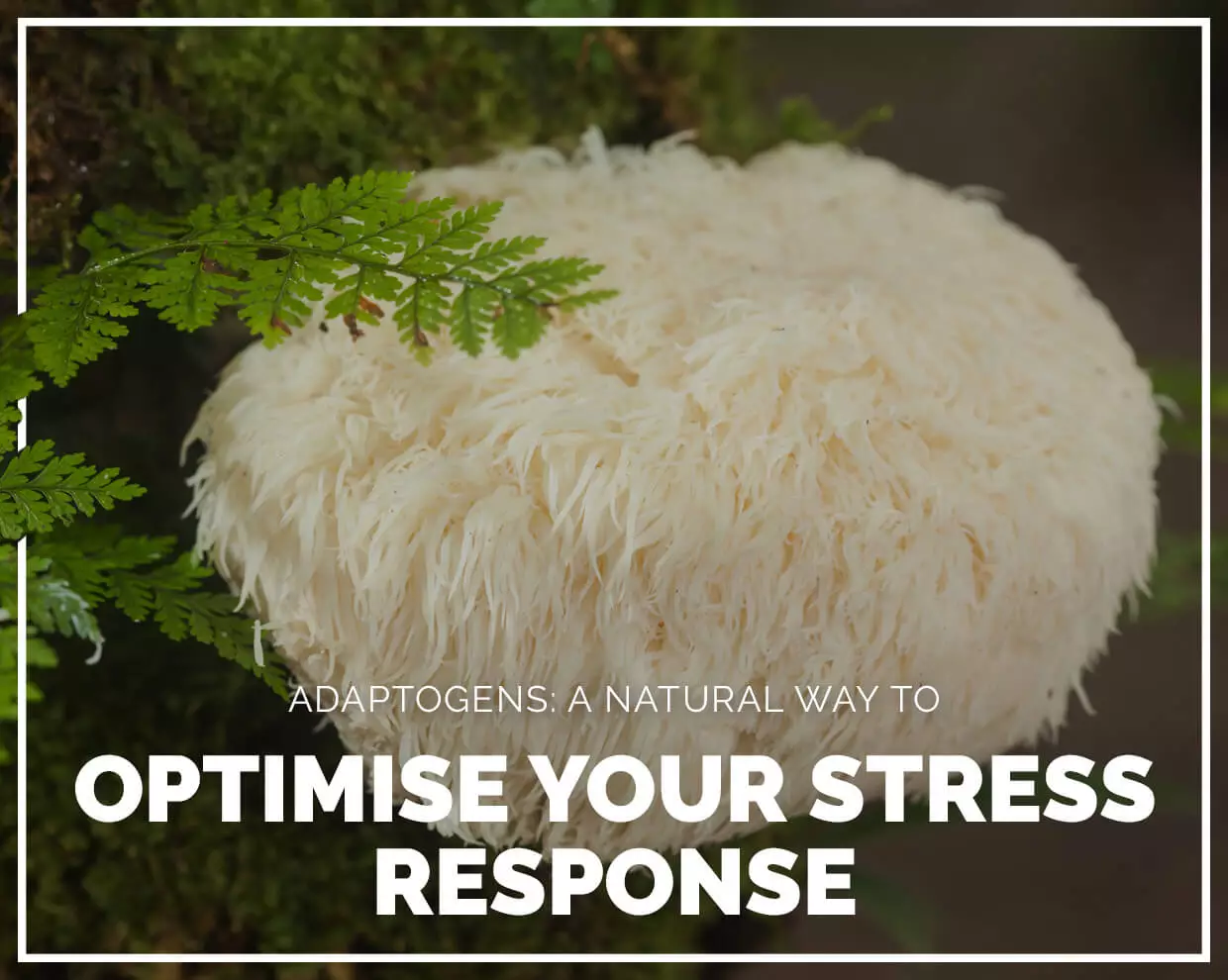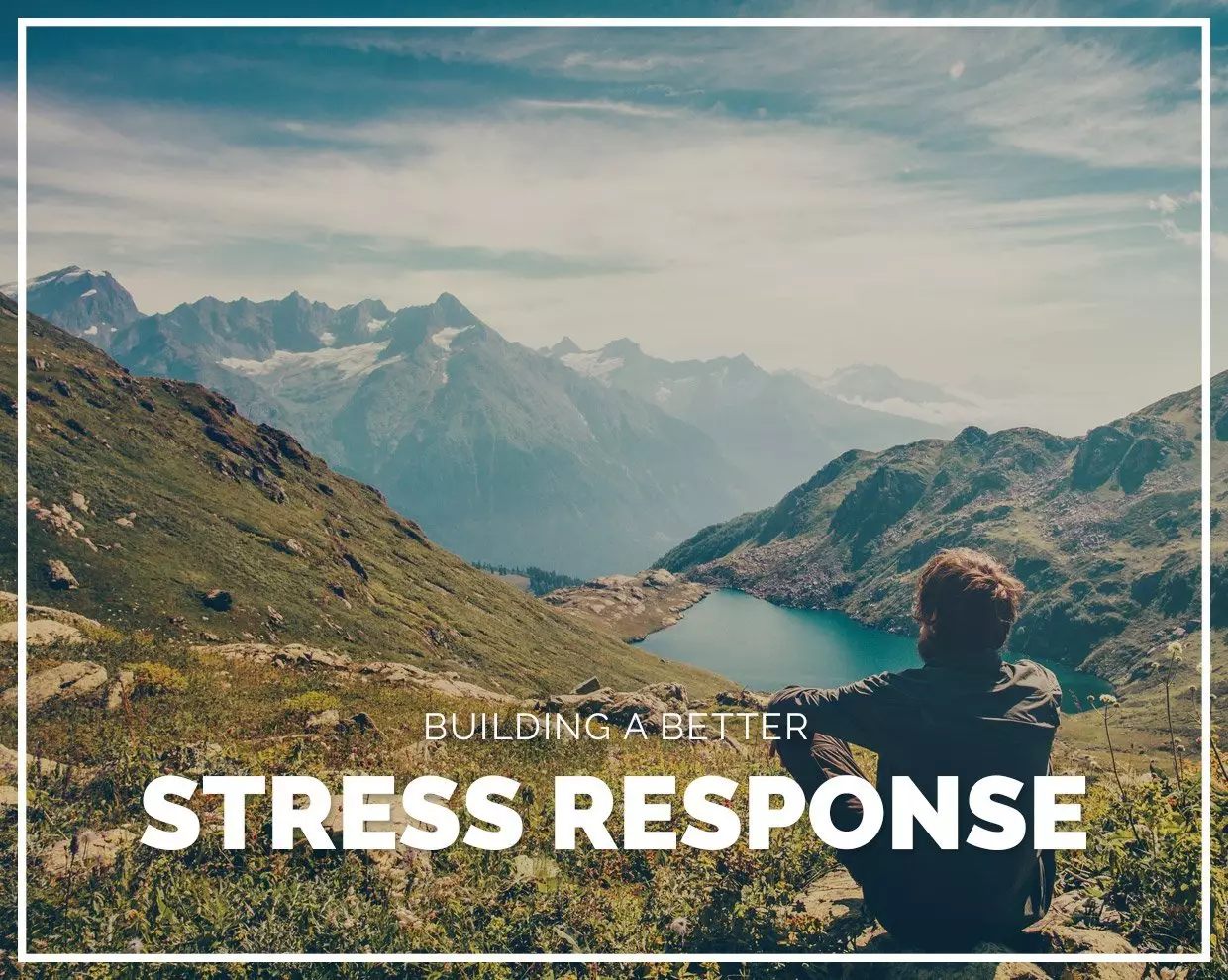Quick intro to stress
While we each have specific life stressors, the main culprits are job pressure, money, health, parenting and relationships. Symptoms of stress can be chronic – leading to reduced performance, lack of motivation, anxiety, and even depression, or acute. But what happens to the body when stress levels are high? Unwanted symptoms can start showing up, such as irritability, fatigue, headaches, upset stomach, feeling on edge, nausea and low mood.
Though there are many mindfulness and wellbeing tools out there to support us, sometimes we need a little more of a helping hand, and that’s where supplements come in. Here is the evidence currently available on five different supplements with the potential to help curb stress as you start your journey toward a calmer, healthier you.
1. Rhodiola rosea
Rhodiola rosea is a gentle and powerful adaptogen that can be used to combat stress and improve associated systems such as anxiety, exhaustion and irritability(1). Grown in Russia and Asia, this botanical herb contains two potent actives: rosavin and salidroside. Rhodiola has long been known as a natural, nontoxic herb that stimulates the body’s stress response, helping to increase the metabolism and decrease the stress hormones(2). Studies have shown that just 400mg of Rhodiola extract improved the symptoms related to burnout in people with chronic fatigue, in just 1 week(3).
Research has also shown that Rhodiola may help improve some symptoms of depression. Similar to antidepressants, it may positively influence the neurotransmitters that control our mood and emotions(4).
What’s more, Rhodiola has also been shown to increase mental performance and boost mood. Though more human studies are needed to verify these findings, animal studies have found that just a single dose of Rhodiola increased the memory of mice, as well as having an antidepressant effect – making them behave in a more positive, sociable way(5).
We partner with several brands that have supplements containing Rhodiola rosea, including Cognetics and Quicksilver Scientific.
2. Glycine
Glycine is a small amino acid that has a mighty impact on the body and brain. It’s actually the simplest, and smallest amino acid there is, yet it’s everywhere, helping out with a lot of different things in the body. Glycine is essentially the body’s peacekeeper, working to aid all manner of bodily functions to keep the body and brain healthy. From improving detoxification to combating inflammation, to speeding up digestion and boosting energy – even preventing achy joints and unwanted wrinkles – glycine is a powerhouse.
Whether it’s helping the body digest fats by creating essential bile salts(6), supporting cellular energy by making creatine(7), helping to build the mighty antioxidant glutathione (responsible for detoxification)(8), helping to keep inflammation down(9), or relaxing the blood vessels, lowering blood pressure and therefore calming the mind(10). It’s fair to say that glycine does a whole lot of good when it comes to managing and reducing stress.
3. Ashwagandha
Ashwagandha is one of the most well-known herbs in Ayurvedic medicine and has been used for thousands of years in treating mood-related issues and stress symptoms.
Ashwagandha is an adaptogen that helps the body cope with stress by controlling mediators like heat shock proteins, cortisol, and other proteins(11). Several studies have shown that ashwagandha supplements may help relieve stress and anxiety. For example, a study found that people who took 250 or 600 mg of ashwagandha extract for 8 weeks had significantly reduced perceived stress and levels of the stress hormone cortisol compared with those who took a placebo(12).
A few of our favourite ashwagandha-containing supplements are by the brands Quicksilver Scientific and Neurohacker Collective, both of which are designed to optimise your sleep and reduce stress levels.
4. Magnesium
Magnesium, an essential dietary mineral, is so good for anxiety and stress that it’s been called “nature’s Valium.” It’s widely known for its ability to reduce physical stress on the body, and research has found that it binds itself with the phosphates of phospholipids in cell membranes, therefore stabilising the membrane itself(13). One study found that athletes who were subject to severe physical stress who supplemented with magnesium each day started to see lowered cortisol levels – and concluded that magnesium intake should be at least 260 mg/day for male and 220 mg/day for female athletes(14). But if you’re not an athlete, Magnesium can also help relax your mind.
One way that magnesium counters stress is by binding to and stimulating GABA receptors in the brain – the neurotransmitter that slows down brain activity. When GABA is too low, the “on” switch in your brain gets stuck, and it becomes really difficult to relax. If you’re easily overwhelmed, hyperactive, disorganised or have racing thoughts at night, you might have low GABA levels(15).
If any of these symptoms apply to you and you don’t supplement with magnesium, then check out BiOptimizers Magnesium Breakthrough, Upgraded Formulas - Upgraded Magnesium Liquid, Morning Magnesium. You can find all our magnesium supplements here.
5. B Complex
B-Vitamins are natural mood boosters, and an increasing amount of evidence shows how effective they are when it comes to tackling stress. Research has revealed that chronic stress can deplete levels of B-Vitamins, especially B6 in the body, and symptoms of stress appear to decrease when a high dosage of B-Vitamins is introduced(16). Folate, an essential B-Vitamin, has been shown to improve mood(17), as well as B-Complex in boosting mood in healthy individuals and those who were at risk from depression(18). In fact, if you’re looking for a mood-boosting effect, then Folate, B6 and B12 are the key vitamins that have a direct effect on mood and neurotransmitter regulation.
Finally, B-Vitamins have even been shown to improve work-related stress and increase performance. A research centre in Australia examined whether Blackmore’s Executive B Stress Formula, containing a complex of mostly B group vitamins, improved work-related stress in sixty participants, over 90 days. They were assessed in terms of work demands, mood, anxiety and strain. The findings show that the Vitamin B group reported significant reduction in personal strain, while the placebo group showed a steady increase in levels of strain over the course of the experiment(19).
To start supplementing with B-Vitamins, your best bet is Quicksilver Scientific – check them out here.
The takeaway
There’s no escaping the impact of stress – life is just too fast-paced for most of us, and we can’t all go live in the Maldives. But we can support ourselves as much as possible, and give it a helping hand by using the right supplements to support our brain, mood, and body.
Want to learn even more about stress? Discover how you can build a better stress response here.

 EU Store
EU Store  UK Store
UK Store NZ Store
NZ Store AU Store
AU Store

